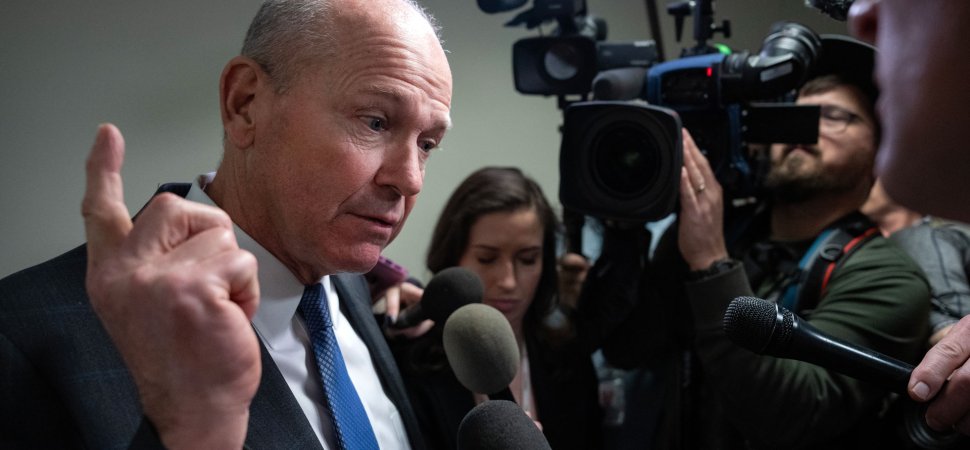-
Conservation slowing biodiversity loss, scientists say
 A first-of-its-kind study shows conservation is worth investing in, researchers say.
A first-of-its-kind study shows conservation is worth investing in, researchers say.
Continued here -
Fossil fuels could have been left in the dust 25 years ago - FT (No paywall)
If only we’d followed Wright’s Law, solar tech could have been cheaper much sooner
Continued here -
The tech wars are about to enter a fiery new phase - The Economist (No paywall)
 America, China and the battle for supremacy
America, China and the battle for supremacy
Continued here -
How strong is India’s economy? - The Economist (No paywall)
 It isn’t the next China, but it could still transform itself and the world
It isn’t the next China, but it could still transform itself and the world
Continued here -
The better way to measure cosmic time
 There are a number of grand questions we can ask about the Universe that cut right to the very core of what reality actually is, and were some of the biggest head-scratchers for all of human history. Questions like, “What is the Universe?” “How big is it?” and “Was it eternal, or did it spring into existence, and if so, when?” used to be some of the greatest philosophical mysteries, and yet the last 100 years have provided firm, scientific answers. We know what the Universe is, we know that the part observable to us is a hair over 92 billion light-years in diameter, and we know that the hot Big Bang, which started off the Universe as-we-know-it, occurred precisely 13.8 billion years ago, with an uncertainty in these values of just ~1% or so.
There are a number of grand questions we can ask about the Universe that cut right to the very core of what reality actually is, and were some of the biggest head-scratchers for all of human history. Questions like, “What is the Universe?” “How big is it?” and “Was it eternal, or did it spring into existence, and if so, when?” used to be some of the greatest philosophical mysteries, and yet the last 100 years have provided firm, scientific answers. We know what the Universe is, we know that the part observable to us is a hair over 92 billion light-years in diameter, and we know that the hot Big Bang, which started off the Universe as-we-know-it, occurred precisely 13.8 billion years ago, with an uncertainty in these values of just ~1% or so.
But why, of all the ways there are to measure time and distance, do we use such an Earth-centric set of units, like “years” and “light-years”? Isn’t there a better, more objective, more universal way to do it? Surely there is. At least, that’s what Jerry Bear thinks, writing in to ask:
Continued here -
Rhyme as reason: The cognitive quirk that makes bad advice seem wise
 Many summers ago, when I was young, I got some booze, I got drunk, and I got a hangover. The next morning, I told my dad what happened over breakfast. “We had some wine at the restaurant,” I groaned, “and then a few beers at Mark’s house. It doesn’t seem enough for me to feel this bad.” My dad chuckled the chuckle of the knowing. He then said something I carry with me to this day: “Beer before wine and you’ll feel fine; wine before beer and you’ll feel queer.”
Many summers ago, when I was young, I got some booze, I got drunk, and I got a hangover. The next morning, I told my dad what happened over breakfast. “We had some wine at the restaurant,” I groaned, “and then a few beers at Mark’s house. It doesn’t seem enough for me to feel this bad.” My dad chuckled the chuckle of the knowing. He then said something I carry with me to this day: “Beer before wine and you’ll feel fine; wine before beer and you’ll feel queer.”
Years later, I’m fairly certain my dad was dealing in aphoristic pseudoscience, but the point is that out of all the many tidbits of advice he handed down over the years, only a few stick in my memory. And those are the ones that rhymed. There’s a mnemonic heft to a well-turned phrase, and a rhyming line lodges itself far easier than an entire book’s worth of learning.
Continued here -
Gaiasignatures: A new way to search for alien life
 Hunting for life on other planets is hard; it’s like trying to spot an ant on the other end of a football field. The closest potential host, Venus, is 25 million miles away. Beyond our Solar System, exoplanets that have piqued astronomers’ interest are light-years away.
Hunting for life on other planets is hard; it’s like trying to spot an ant on the other end of a football field. The closest potential host, Venus, is 25 million miles away. Beyond our Solar System, exoplanets that have piqued astronomers’ interest are light-years away.
To search for life from these sizable distances, scientists look for biosignatures: elements, molecules, or substances that might have been made by life. These include oxygen and methane, among other compounds. But there’s growing doubt that biosignatures will ever constitute concrete evidence of extraterrestrials. After all, as philosopher of science Peter Vickers at Durham University notes, our knowledge of exoplanet chemistry and geology is almost as lacking as our conceptions of aliens. From so far away, how could we ever be sure that any potential biosignature didn’t come from non-life?
Continued here -
California Rule Seeks to Limit Health Cost Increases to 3 Percent
 Doctors, hospitals and health insurance companies in California will be limited to annual price increases of 3 percent starting in 2029 under a new rule state regulators approved Wednesday in the latest attempt to corral the ever-increasing costs of medical care in the United States.
Doctors, hospitals and health insurance companies in California will be limited to annual price increases of 3 percent starting in 2029 under a new rule state regulators approved Wednesday in the latest attempt to corral the ever-increasing costs of medical care in the United States.
The money Californians spent on health care went up about 5.4 percent each year for the past two decades. Democrats who control California's government say that's too much, especially since most people's income increased just 3 percent each year over that same time period.
Continued here -
Deloitte Study: Women Are More Stressed--but Hybrid Helps
 Half of women say their stress levels have increased from a year ago, according to a recent survey of 5,000 women across 10 countries from Deloitte. Meanwhile, nearly half said they were "concerned or very concerned" about their mental health--one of their top three concerns, along with financial security and their rights. Â
Half of women say their stress levels have increased from a year ago, according to a recent survey of 5,000 women across 10 countries from Deloitte. Meanwhile, nearly half said they were "concerned or very concerned" about their mental health--one of their top three concerns, along with financial security and their rights. Â
Why? One factor is an "inability to disconnect from work," according to the report, as only 37 percent of surveyed women said they could "switch off" from work. Mental health pressures are also particularly pertinent for women bearing the brunt of household responsibilities, who are "far less likely to say they have good mental health than those who do not."Â
Continued here -
Boeing Crash Families Urge U.S. to Prosecute the Company
 Boeing said Wednesday that it lost $355 million on falling revenue in the first quarter, another sign of the crisis gripping the aircraft manufacturer as it faces increasing scrutiny over the safety of its planes and accusations of shoddy work from a growing number of whistleblowers.
Boeing said Wednesday that it lost $355 million on falling revenue in the first quarter, another sign of the crisis gripping the aircraft manufacturer as it faces increasing scrutiny over the safety of its planes and accusations of shoddy work from a growing number of whistleblowers.
Company executives have been forced to talk more about safety and less about finances since a door plug blew out of a Boeing 737 Max during an Alaska Airlines flight in January, leaving a gaping hole in the plane.
Continued here
Friday 26th April 2024
Top stories this week